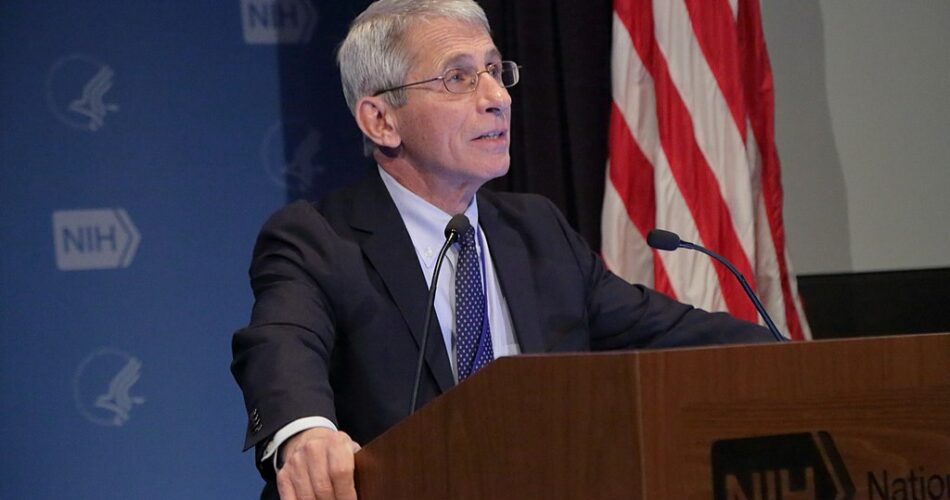He’s out of his mind.
Dr. Anthony Fauci sparked controversy across social media recently when a video clip went viral, revealing his stance on practicing his Roman Catholic faith. During an interview with BBC commentator Katty Kay earlier this month, Fauci reflected on his marriage at a chapel, acknowledging his Catholic upbringing but explaining his detachment from the practice due to “complicated reasons.”
Fauci expressed confidence in his “personal ethics” guiding his moral compass, implying his self-beliefs suffice to steer him in the right direction. He cited concerns about the institutional aspects of the Church as contributing to his disengagement. While affirming his identification as Catholic and past participation in sacraments, he dismissed active Catholicism as an unnecessary ritual.
These remarks drew swift criticism, notably on social platforms. Some seized on Fauci’s statement, interpreting it as an assertion of godlike self-assurance, with accusations of hubris likened to satanic levels of self-exaltation. Various voices from Blaze TV host Steve Deace to Stanford professor Dr. Jay Bhattacharya and author James Lindsay criticized Fauci’s theological views and perceived arrogance.
Others questioned Fauci’s purported ego and lamented his handling of national matters during the pandemic. Amidst the backlash, there were remarks highlighting Fauci’s apparent detachment from religious practice as a broader reflection of contemporary spiritual beliefs among fallen-away Catholics.
Catholic author Kennedy Hall linked Fauci’s perspective to the post-Vatican II ethos, suggesting a focus on human glorification sidelining the need for God. Father Stephen Blaxton echoed this sentiment, interpreting Fauci’s remarks as emblematic of the broader disillusionment among lapsed Catholics, noting a collective sense of loss in spiritual connection.
In sum, Fauci’s candid disclosure about his faith drew varied reactions, igniting debates on spirituality, individual beliefs, and the evolving landscape of religious identification in contemporary society.
